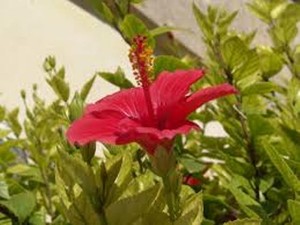20 Jul Sun 2014
HERBS THAT ARE JUST NOT SAFE TO USE AS MEDICINE. THIS IS THE FINAL PART OF THE SERIES
SENNA (Cassia angustifolia) SENNA Senna alexandrina other names: Aden senna, Cassia acutifolia, Cassia augustifolia, Cassia senna, Cassia marilandica Mecca senna, nubian senna, and tinnevally senna, wild senna, locust plant
Senna pods and leaves contain anthroquinones, which have strong laxative effect. Does not matter which senna you use, they are all the same,
Senna is a powerful laxative that should be used for no more than seven days in a row except under a physician's supervision. It can cause severe abdominal cramps. Do not use Senna if you have intestinal problems such as ulcers, irritable bowel syndrome, Crohn's disease or ulcerative colitis. Do not use Senna if you are pregnant or nursing. DO NOT give Senna to children.
Senna is a potent cathartic drug, not just a different tasting tea.
SIDE EFFECTS: diarrhea, intestinal cramps or gripping pains, sever weight loss
This herb can also cause finger clubbing ( rounded swelling of the fingertips and nails);
fluid and chemical imbalances; jaw tightness.
DO NOT USE SENNA WHILE TAKING heart drug called calcium channel blockers, such as Calan and Procardia; Indocin
Don't use SENNA if you have an inflammatory condition of the digestive tract, hemorrhoids or a prolapsed rectum
Do not use Senna in cases of inflammation of the stomach.
Don't use Senna to force a daily bowel movement
Senna supplements differ in potency
Senna will discolor your urine.
WARNING: Do NOT use Senna for inflammatory conditions of the alimentary canal, fever, piles, menorrhagia, prolapse of the rectum and uterus, or pregnancy.
If you should happen to take Senna use the following to modify the herb: any one or all of; ginger root, anise, caraway, fennel or coriander.
Honestly friends, there are lots better herbs than this to take for a laxative. I use 4 sticks of black licorice and red grapes. Does a good job every time! Use sensible herbs, so that you feel good, not lousy! Take care of your body and it will take care of you!
ST. JOHN'S WORT (Hypericum perforatum)
ST JOHN’S WORT is regarded by herbalists as an effective treatment for depression (even though it isn't). It may interfere with effectiveness of other drugs.
ST JOHN'S WORT may cause cataracts in people exposed to visible or ultraviolet light after taking it. Other side effects may include gastrointestinal disturbances, allergic reactions, fatigue, dizziness, confusion, dry mouth, and photosensitivity.
Although for years ST JOHN’S WORT has been used for depression, many reports and clinical trials have found insufficient evidence that ST JOHN’S WORT is effective for depression. According to WEBMD and PSYCHOLOGY TODAY it is no more effective than the standard antidepressants. It’s notFDA approvedfor quality, safety or purity. It is very possible for ST. JOHN'S WORT or any other herbal supplement to be contaminated with otherdrugs or even toxic metals
France has bannedthe use of ST. JOHN'S WORT in all products and warnings of herb-drug interactions are listed inJapan, the UK and Canada, but not the US.(source from PSYCHOLOGY TODAY August, 2013)
VALERIAN (Valeriana officinalis)Scientific/medical name(s): Valeriana officinalis
Other common name(s): valerian tea, valerian root, valerian extract
May work for insomnia. Valerian is an herb used for anxiety and sleeplessness
SIDE EFFECTS may include headache, excitability, uneasiness, and, in some cases, insomnia, restlessness and heart palpitations, especially with long-term use of valerian. Long-term or excessive use is not advised because of possible side effects,
Some multi-herb remedies containing valerian have been linked to liver damage.
Herbal practitioners claim that valerian root or extract can lessen anxiety and nervous tension, promote sleep, and help people quit smoking, ease congestion, and relieve muscle spasms. Generally, no one claims that valerian is useful for treating or preventing cancer.
Valerian should not be taken with alcohol, antihistamines, muscle relaxants, sedatives, anti-seizure drugs, narcotics, or any drugs used in treatment of mental illnesses. People with liver or kidney disease, on cancer treatment medicines, anti-fungal drugs, allergy drugs, or medicines for high cholesterol should talk with their doctors or pharmacists about possible drug interactions before taking valerian. Valerian may weaken the heartbeat and cause paralysis. Because valerian may interact with anesthetics, people who are going to have surgery should not use valerian. However, suddenly stopping the herb has caused withdrawal symptoms in some people, so the dose of valerian should be tapered slowly, starting several weeks before surgery.
De Milto, Lori; Frey, Rebecca."Foxglove."Gale Encyclopedia of Alternative Medicine. 2005. Encyclopedia.com. (December 27, 2013). http://www.encyclopedia.com/doc/1G2-3435100319.html
webmd.com
http://rationalwiki.org/wiki/List_of_medicinal_plants
The Honest Herbal by Varro E. Tyler
http://www.encyclopedia.com/
The Complete Guide to HERBAL MEDICINES BY Charles W. Fetrow and Juan R. Avila
Know Your Poisonous Plants by Wilma Roberts James
An Illustrated Guide to 101 Medicinal Herbs by Steven Foster
http://nadiasyard.com/our-native-plants/american-pokeweed


good article good job